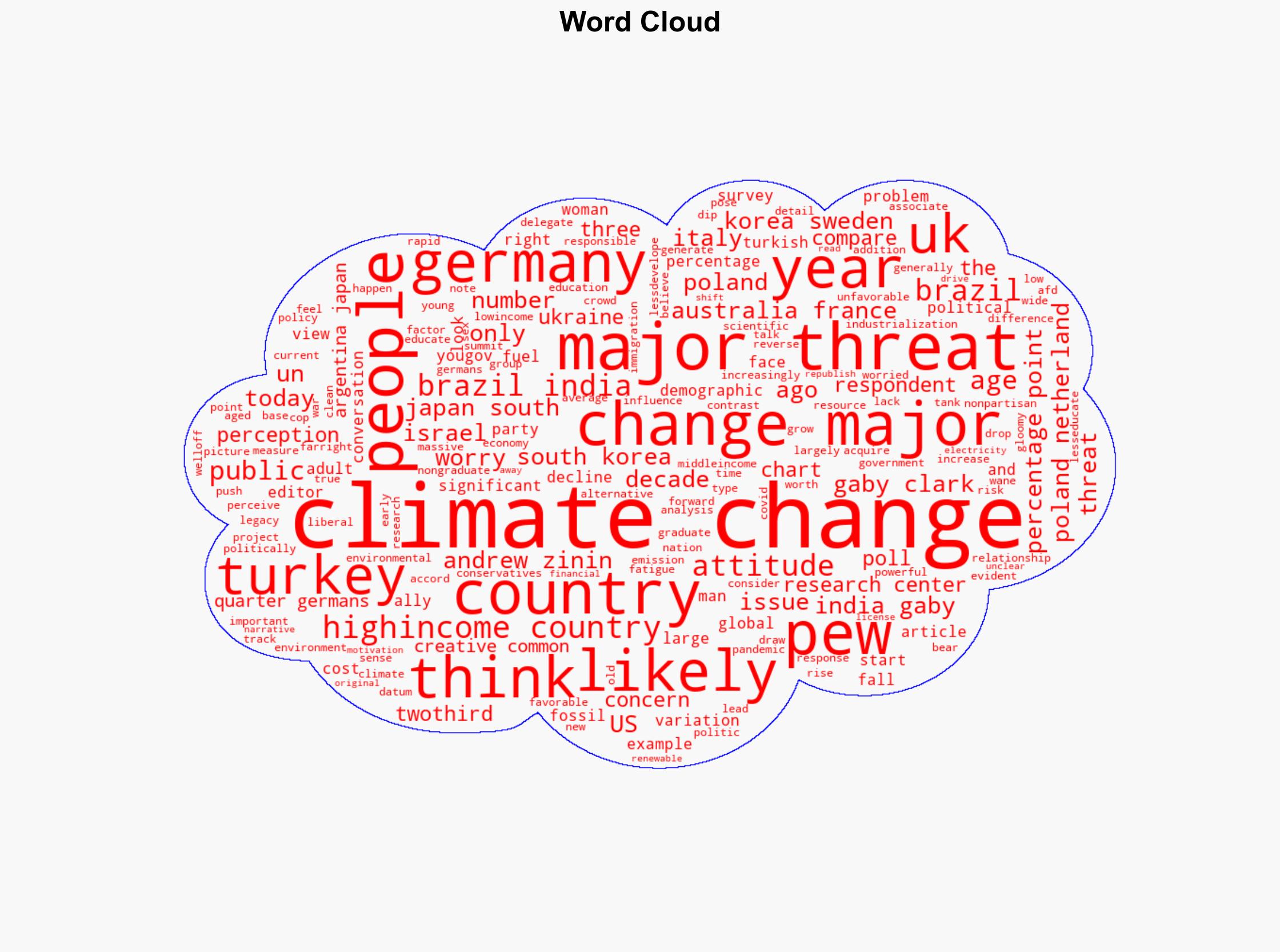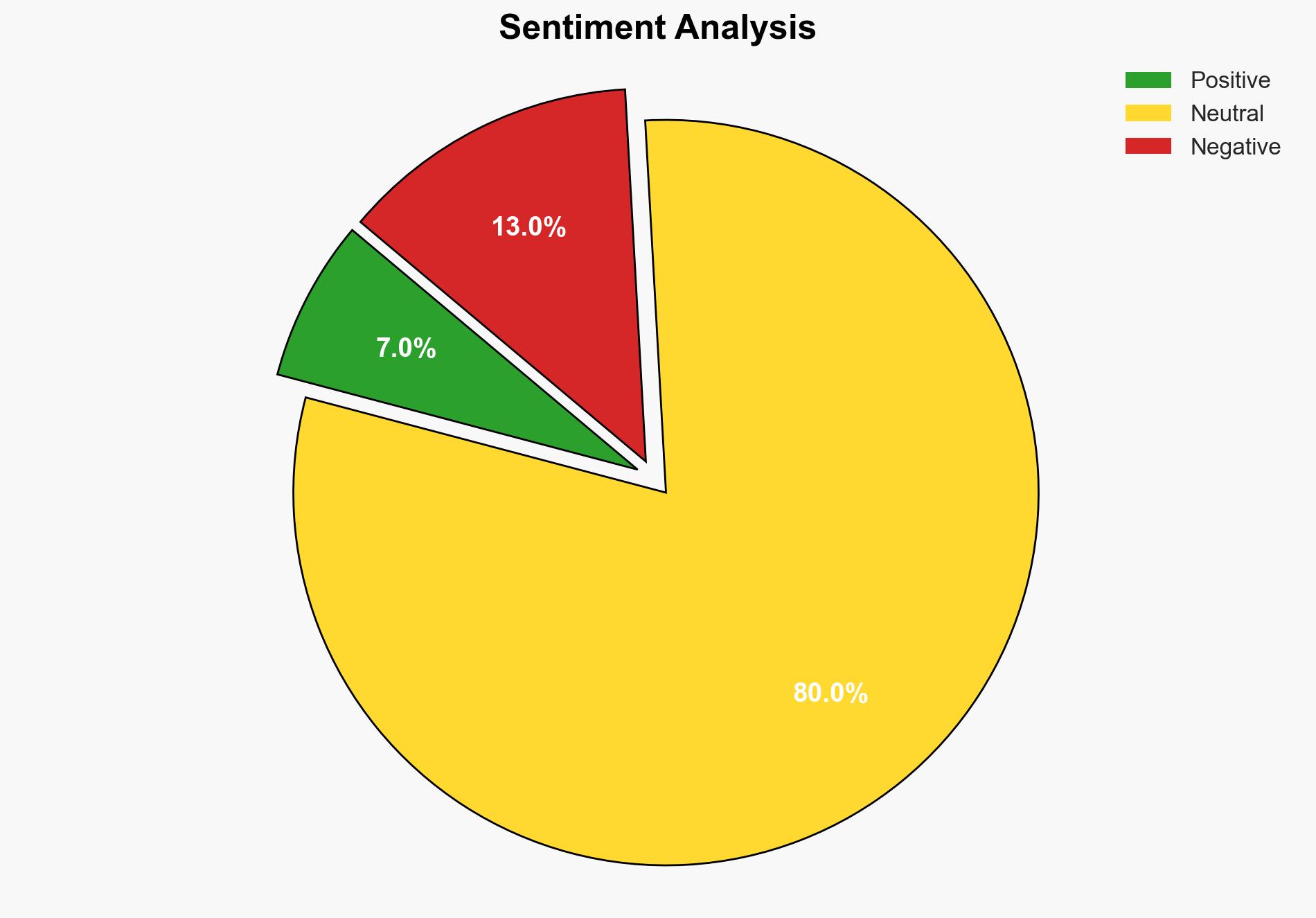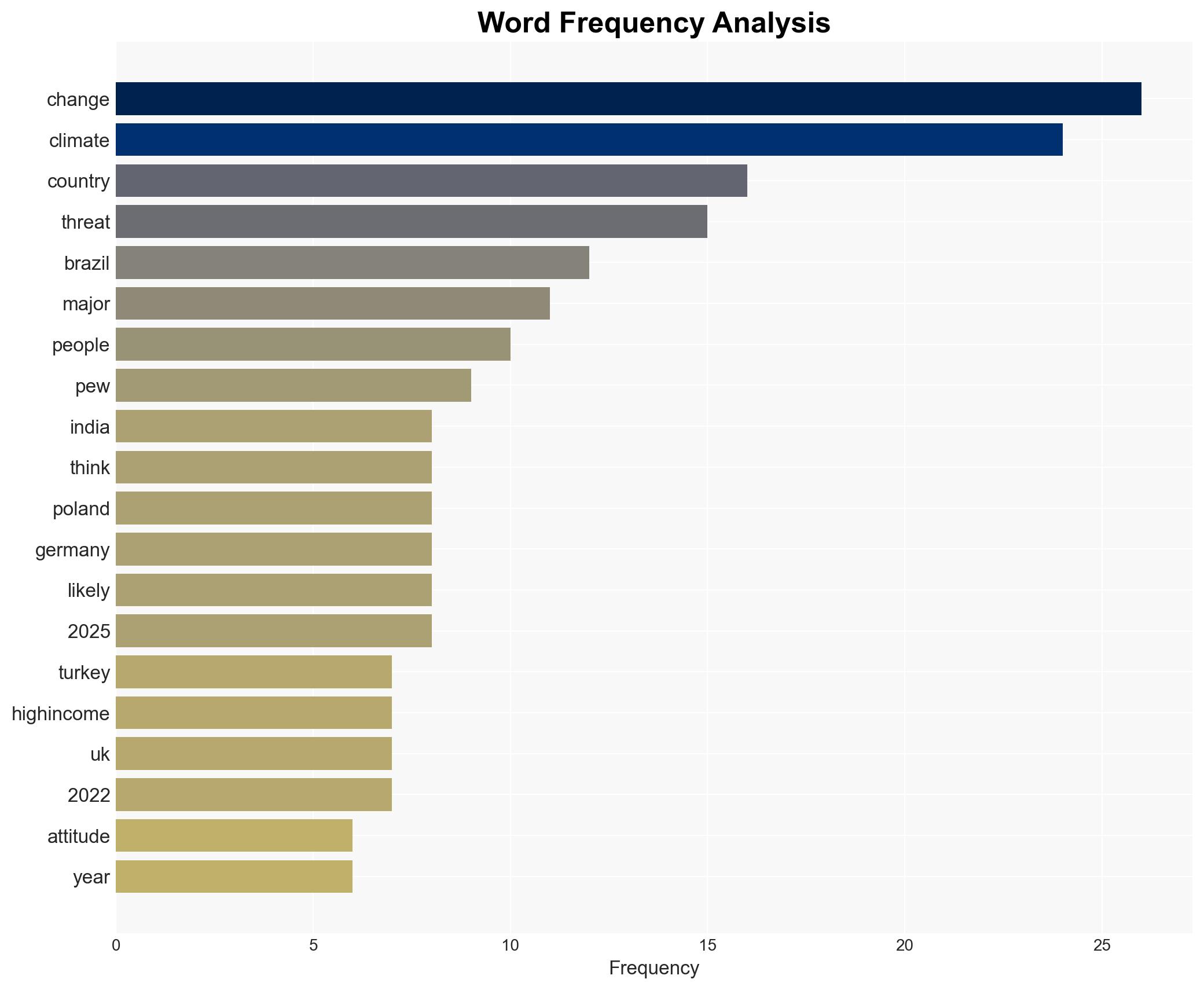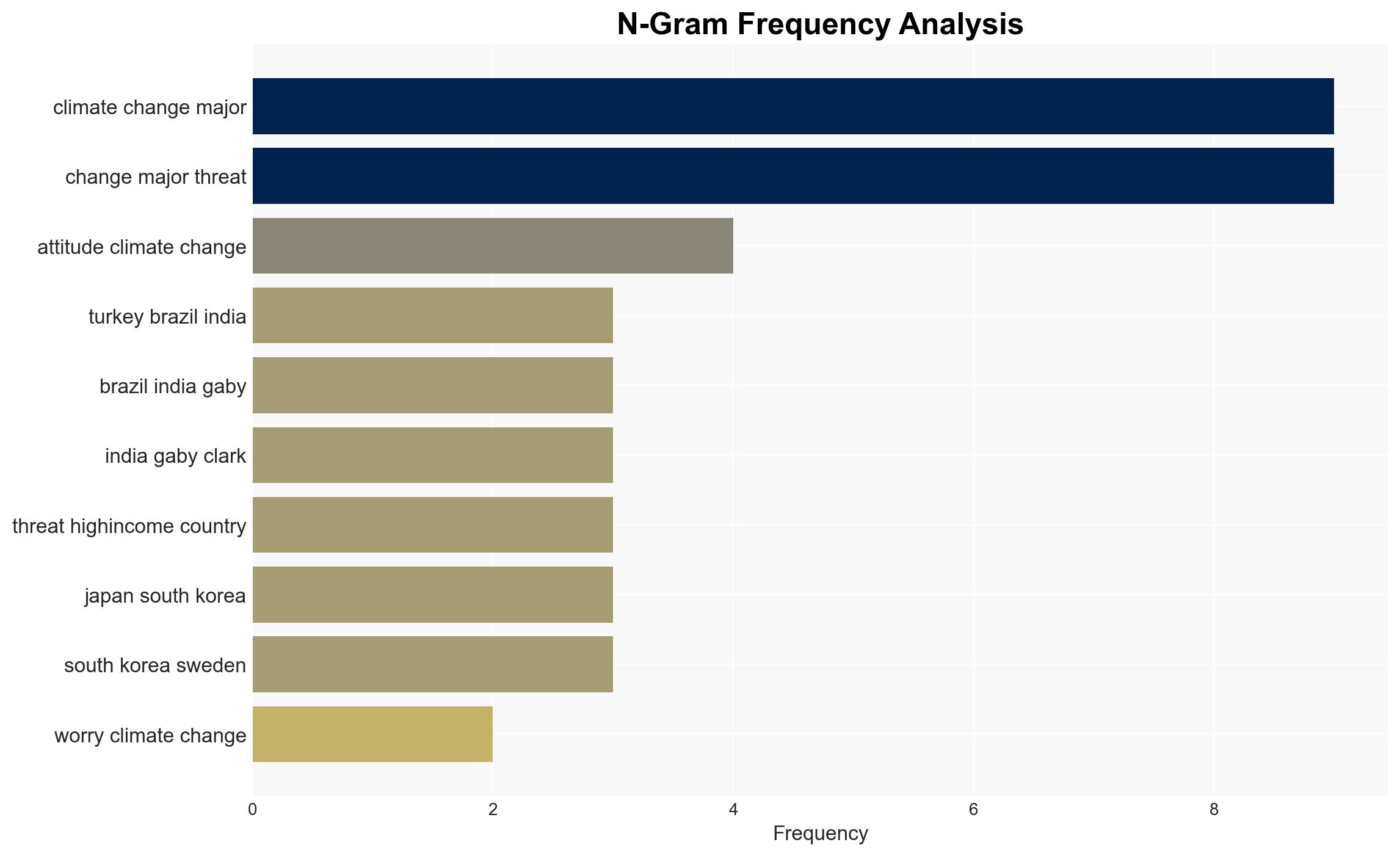Worries about climate change are waning in many well-off nationsbut growing in Turkey Brazil and India – Phys.Org
Published on: 2025-11-17
AI-powered OSINT brief from verified open sources. Automated NLP signal extraction with human verification. See our Methodology and Why WorldWideWatchers.
Intelligence Report:
1. BLUF (Bottom Line Up Front)
There is a divergence in public concern about climate change between high-income and middle-income countries, with the former showing waning interest and the latter increasing concern. This trend may impact global climate policy and international cooperation. Confidence Level: Moderate. Recommended action includes targeted communication strategies to re-engage high-income countries and leverage growing concern in middle-income countries to foster global climate initiatives.
2. Competing Hypotheses
Hypothesis 1: The decline in climate change concern in high-income countries is primarily due to competing priorities such as economic issues and geopolitical tensions, leading to a shift in public focus.
Hypothesis 2: The increase in climate change concern in middle-income countries is driven by direct and visible impacts of climate change, such as extreme weather events, which are more acutely felt in these regions.
Hypothesis 2 is more likely as it aligns with the observed increase in climate-related events in middle-income countries and the direct impact these have on daily life, making the threat more tangible compared to abstract economic or geopolitical concerns in high-income countries.
3. Key Assumptions and Red Flags
Assumptions include the reliability of public opinion polls and the representativeness of the surveyed populations. There is a risk of bias in interpreting data due to cultural differences in expressing concern. A red flag is the potential for political manipulation of climate change narratives to suit domestic agendas, particularly in polarized environments.
4. Implications and Strategic Risks
The divergence in climate change concern could lead to fragmented international climate policies, weakening global efforts. High-income countries may deprioritize climate initiatives, impacting funding and technology transfer to less developed nations. This could exacerbate global inequalities and lead to geopolitical tensions, particularly if middle-income countries demand greater accountability from historically high-emission countries.
5. Recommendations and Outlook
- High-income countries should be encouraged to re-engage with climate initiatives through economic incentives and highlighting the long-term benefits of sustainable policies.
- Middle-income countries should be supported in their climate adaptation and mitigation efforts, leveraging their growing concern to foster regional leadership in climate initiatives.
- Best-case scenario: Renewed global cooperation leads to accelerated climate action and innovation.
- Worst-case scenario: Fragmentation of climate efforts results in increased global warming and associated socio-economic disruptions.
- Most-likely scenario: Incremental progress with regional disparities in climate policy effectiveness.
6. Key Individuals and Entities
Gaby Clark (Scientific Editor), Andrew Zinin (Lead Editor), Pew Research Center (Data Source), YouGov (Poll Source)
7. Thematic Tags
Regional Focus, Regional Focus: High-Income Countries, Middle-Income Countries, Climate Change, Public Opinion, International Policy
Structured Analytic Techniques Applied
- Causal Layered Analysis (CLA): Analyze events across surface happenings, systems, worldviews, and myths.
- Cross-Impact Simulation: Model ripple effects across neighboring states, conflicts, or economic dependencies.
- Scenario Generation: Explore divergent futures under varying assumptions to identify plausible paths.
- Narrative Pattern Analysis: Deconstruct and track propaganda or influence narratives.
Explore more:
Regional Focus Briefs ·
Daily Summary ·
Support us
·





